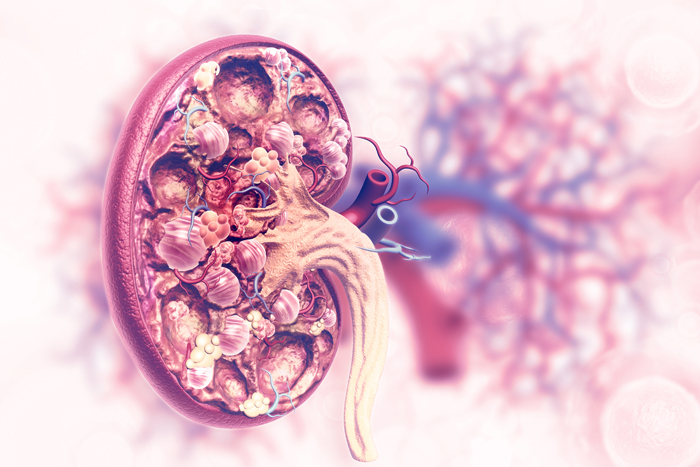Chronic Kidney Disease Treatment in MRC Nagar, Chennai
Chronic Kidney Disease (CKD) is also known as Chronic Kidney Failure. It gradually reduces kidney function and may increase the risks of other diseases such as blood vessel disease. If Chronic Kidney Disease advances, it can result in kidney failure. Timely diagnosis helps in preventing the condition from getting worse.
You can search for “Chronic Kidney Disease doctors near me” or “Chronic Kidney Disease specialists near me” to get more information.

What are the symptoms of Chronic Kidney Disease?
Chronic Kidney Disease takes time to show the following symptoms:
- Nausea
- Vomiting
- Weakness
- Cramps
- Shortness of breath
- Chest pain
- Trouble concentrating
- Dry and itchy skin
- Going to the bathroom multiple times at night
- Trouble falling asleep
- Loss of appetite
- Swelling in feet and ankles
- High blood pressure
What are the causes of Chronic Kidney Disease?
Chronic Kidney Disease is a result of impairment in kidney function due to a disease or sickness. This necessitates a visit to a CKD specialist in Chennai. Here are some conditions that can cause Chronic Kidney Disease:
- Diabetes (Type 1 and Type 2)
- High blood pressure
- Glomerulonephritis: A disease that results in inflammation in the kidney's filtering units.
- Polycystic Kidney Disease: In this condition, large cysts develop on the kidneys. These cysts then damage the surrounding tissue.
- Interstitial Nephritis: It refers to an inflammation in the kidney tubules.
- Vesicoureteral reflux
- Recurrent Kidney Infection
- Blockages in the urinary tract: These obstructions can result from kidney stones and enlargement of the prostate (in men).
When do you need to see a doctor?
If you notice any signs of Chronic Kidney Disease, visit a doctor.
Request an appointment at Apollo Spectra Hospitals, MRC Nagar, Chennai.
Call 1860 500 2244 to book an appointment.
What are the treatments available for Chronic Kidney Disease?
If the Chronic Kidney Disease is in the earlier stages, your doctor will seek to control the progression of the disease. However, if the kidney damage has reached the end stage, the doctor will prescribe intensive treatment.
If the kidney damage has advanced to the end stage, then the following treatments are prescribed.
- Dialysis: The kidneys are responsible for filtering wastes and fluids from your blood. However, when a person has Chronic Kidney Disease, his/her kidneys are not able to function properly. The damage may become severe to the extent that it will not allow the kidneys to filter out wastes. Hence, dialysis, the procedure of artificially removing the waste from your blood, is one of the viable options for treatment. Dialysis is of two types:
- Hemodialysis: In hemodialysis, a machine filters out excess fluids and waste from your blood.
- Peritoneal dialysis: In peritoneal dialysis, a catheter fills the abdominal cavity with a solution. This dialysis solution absorbs the excess fluids and waste. Later, the dialysis solution drains out from your body and carries the waste and excess fluids with it.
- Kidney Transplant
Conclusion
Chronic Kidney Disease can result in kidney failure if it is not treated on time. The symptoms of this disease take time to develop. Hence, seek medical consultation at the earliest, if you notice any signs of the disease.
CKD can happen to anyone. However, having a family history increases your risk of suffering from the disease.
You can follow the following steps to minimize the risk of suffering from Chronic Kidney Disease:
- Don't self-medicate
- Quit smoking
- Regularly consult your doctor if you have any disease that can increase your risk of suffering from Chronic Kidney Disease.
- Exercise regularly and maintain your weight.
Your doctor may recommend the following:
- A low-salt diet
- Low-potassium foods
- Limit your protein intake
Symptoms
Treatments
Our Top Specialities
NOTICE BOARD
CONTACT US
CONTACT US
 Book Appointment
Book Appointment


.svg)
.svg)
.svg)
.svg)








